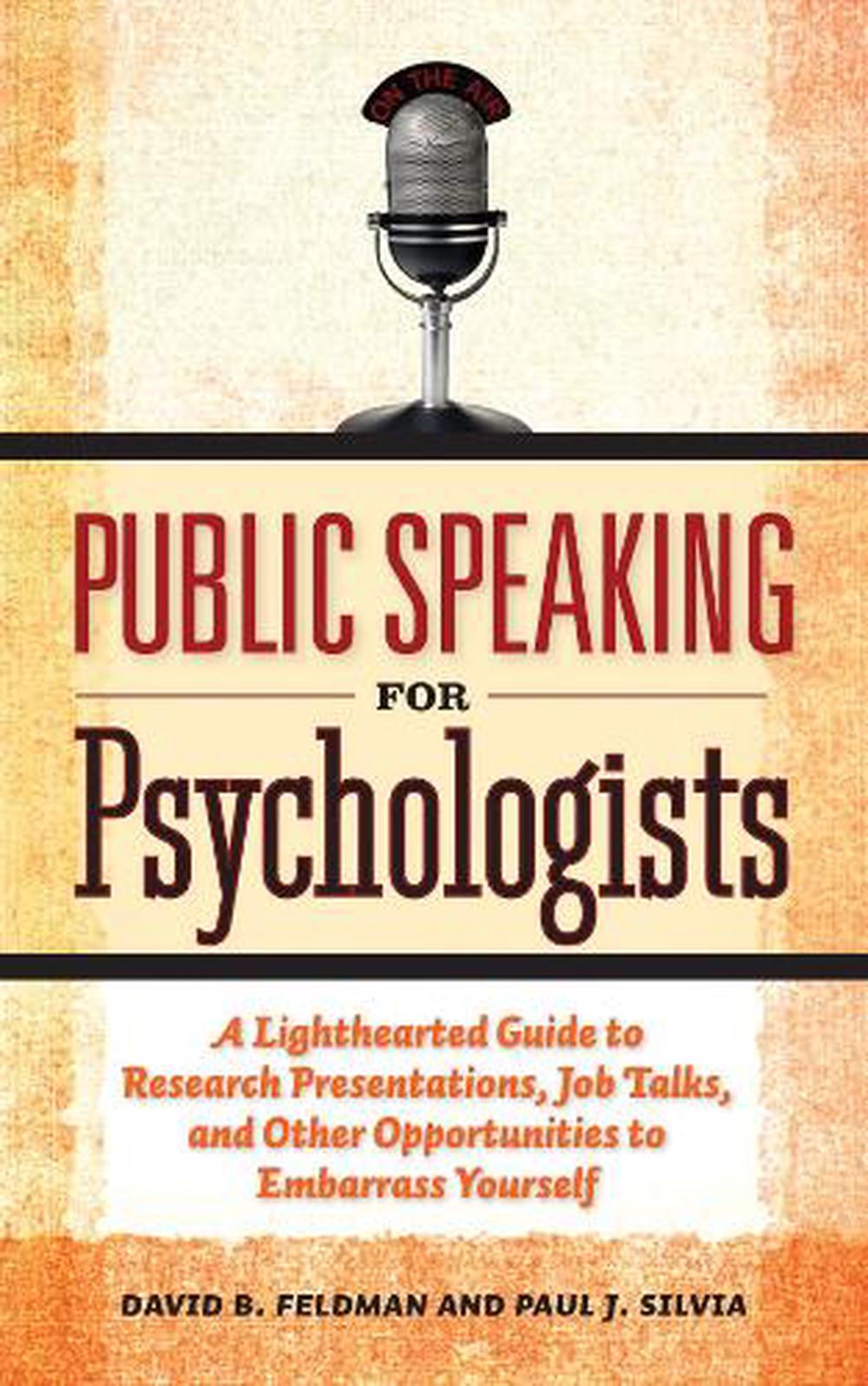
Public Speaking for Psychologists
a lighthearted guide to research presentations, job talks, and other opportunities to embarrass yourself
$57.03
- Paperback
160 pages
- Release Date
14 January 2010
Summary
Public Speaking for Psychologists is a practical and lighthearted guide to planning, designing, and delivering a presentation. Public speaking is one of the most common fears. Few people look forward to talking in front of others and even fewer do it as effectively as they could. A career in psychology and its related fields involves extensive public speaking, so you will need to learn to do it well. With time and practice, you too can become a confident and effective presenter. The first ha…
Book Details
| ISBN-13: | 9781433807305 |
|---|---|
| ISBN-10: | 1433807300 |
| Author: | David B. Feldman, Paul J. Silvia |
| Publisher: | American Psychological Association |
| Imprint: | American Psychological Association |
| Format: | Paperback |
| Number of Pages: | 160 |
| Release Date: | 14 January 2010 |
| Weight: | 183g |
| Dimensions: | 203mm x 127mm |
You Can Find This Book In
About The Author
David B. Feldman
David B. Feldman, PhD, is an assistant professor in the Department of Counseling Psychology at Santa Clara University, Santa Clara, California. His research addresses such topics as hope, meaning, and growth in the face of trauma, serious medical illness, and other highly stressful circumstances. He is a coauthor of The End-of-Life Handbook: A Compassionate Guide to Connecting With and Caring for a Dying Loved One and has published and spoken widely on the psychological aspects of chronic and terminal illness.
Paul J. Silvia, PhD, is an associate professor in the Department of Psychology at the University of North Carolina at Greensboro. His research explores the psychology of emotion, particularly the emotion of interest and its role in aesthetic experience. He won the Berlyne Award, an early-career award given by American Psychological Association Division (Society for the Psychology of Aesthetics, Creativity and the Arts) for his research on the psychology of art and creativity. He recently wrote the books How to Write a Lot: A Practical Guide To Productive Academic Writing and Exploring the Psychology of Interest.
Returns
This item is eligible for free returns within 30 days of delivery. See our returns policy for further details.




